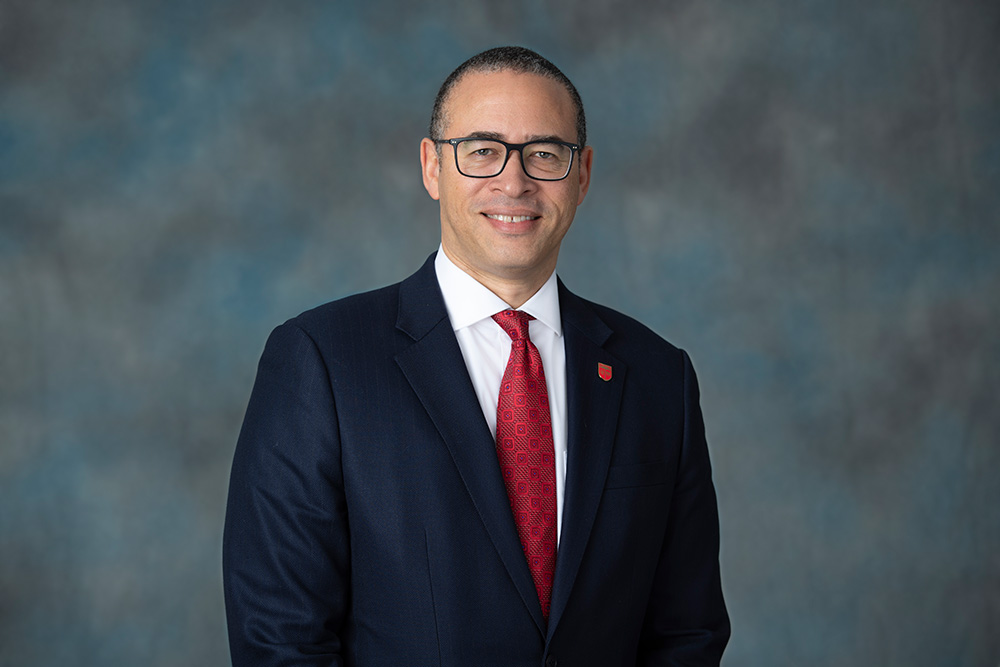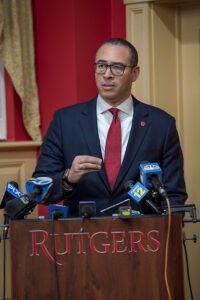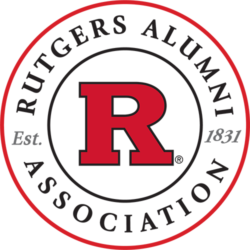AN INTERVIEW WITH RUTGERS UNIVERSITY PRESIDENT JONATHAN HOLLOWAY
BRINGING ALUMNI BACK HOME TO
REDISCOVER RUTGERS

By Christa DiMaio Richie CCAS’99 GSC’05
In a recent interview with 1766 as his first year as president of Rutgers University was coming to a close, Jonathan Holloway shared some thoughts on the importance of keeping alumni engaged by creating a welcoming environment where Rutgers graduates feel heard.

Photo by Nick Romanenko/Rutgers University
Holloway wants to connect with alumni personally, and he has a plan. As restrictions put in place during the pandemic ease and more in-person gatherings are now possible, he will ask Rutgers alumni to “come home”— that is, he will invite them back to campus. He wants to meet with them to discuss how they might bring the best of themselves back to the University.
“Rutgers needs to continue to identify great strength areas and those on the cusp of being great,” Holloway said, and he believes alumni can play a vital role in this process. He wants them to be a part of the vision to reconnect with the University to discuss how they might bring their talents, expertise, and support back to Rutgers.
“We need to change behavior. Both the alumni and the University need to come together,” he said.
Holloway hopes to execute his plan of meeting with alumni across campuses throughout the year to talk about new learning opportunities and innovative ways to reconnect with Rutgers. He acknowledges that many alumni may not know what they can offer, and he would like to meet and listen to what they would like to see Rutgers become in the next few years.
He believes by working together, alumni can rediscover Rutgers, and, in doing so, recreate a community inspired by new connections between administration and alumni. He realizes the alumni are exceptional, and he believes the alumni can effectively transform Rutgers University.
Holloway also acknowledges that “Rutgers cannot be everything to all people.” Instead, he focuses on the concept of a “beloved community,” which stems from the belief that those within the Rutgers community have more in common than they do not.
“A beloved community is when we acknowledge one another including differences and similarities to create a more robust University.” His words reflect Rutgers and those who value Rutgers’ contribution to their lives; instituting a new culture begins by rediscovering how to contribute to these values in professional and personal pursuits. In a recent interview with Rutgers Magazine, Holloway emphasized his focus on connecting with others and intently listening to them – something he refers to as “granting grace,” a practice that he has modeled in the past at Yale University and which he continues today. He promises to listen as he meets with alumni and to bring them back to what they hold dear.
Holloway’s ability to be “graceful” is evident to those who interact with this history professor. He hopes that respect and a willingness to listen when engaged with others, whether within the confines of the University or beyond it when connected with purposeful actions, establish a path to bring alumni back home.
A CHALLENGING FIRST YEAR
In April, President Holloway hosted a virtual event for alumni where he shared some perspectives of his first year at Rutgers, including a rare interaction with a small group of students on campus who recognized him and asked him to take a selfie with them. His other observations included:
- This year has been one challenge after another, but he has seen Rutgers’ resilience throughout.
- Two of the biggest challenges were not being able to meet and engage with students and faculty in person and moving commencement to a virtual format.
- Scarlet Promise Grants, need-based financial aid awards that close the gap between aid from federal and state sources and what Rutgers families can afford, are even more important in the times of COVID-19. There has been $9 million raised toward a $10 million goal.
- He congratulated Rutgers sports for having a banner year.
“A beloved community is when we acknowledge one another including differences and similarities to create a more robust University.”
– President Jonathan Holloway

